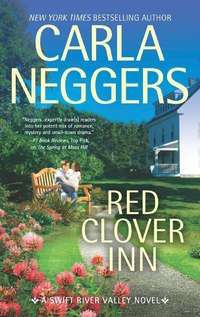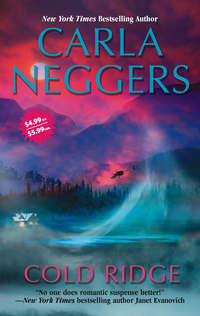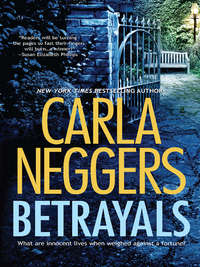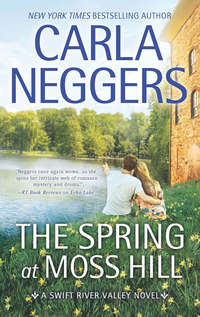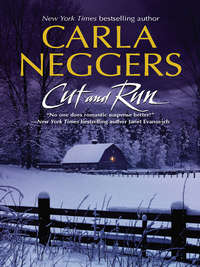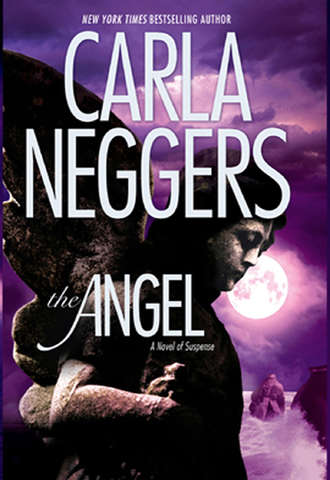
Полная версия
The Angel
As he exited the lounge, he envisioned—as if it were right in front of him—the painting of the Irish cottage he’d bought at last night’s auction. It was as if he was there, in Keira’s world, and he imagined her with brush in hand, her pale blond hair pulled back, her blue eyes focused on where the next dab of paint would go.
Simon heaved a cathartic sigh. “Get a grip,” he muttered.
The hall was empty of FBI agents. His flight would be boarding soon.
He went in search of a candy bar.
Chapter 7
Beara Peninsula, Southwest Ireland
6:30 p.m., IST
June 20
On her second night in Ireland, Keira indulged in a “toasted special”—a grilled ham, cheese, tomato and red onion sandwich—and a mug of coffee liberally laced with some Irish whiskey. She hadn’t specified a brand. She’d told Eddie O’Shea, the owner of the only pub in the tiny Beara Peninsula village where she was to spend the next six weeks, that she wanted whiskey, whiskey from Ireland. Otherwise, she didn’t care.
“Another coffee?” Eddie asked her. He was a sandy-haired, slight man with a quick wit and a friendly nature that seemed tailor-made for his work.
“No, thank you.” Keira heard the touch of Boston in her voice, a surprise to her given her wandering lifestyle. She picked up a triangle of her sandwich, melted cheese oozing from the toasted white bread, a bit of onion curling into a charred sliver of ham. Less than two days on the southwest coast of Ireland, and she was settling in fine and looking forward to her stay there. “If I had more coffee, I’d have more whiskey, and then I’d be in a fix.”
Eddie eyed her with what she could only describe as skeptical amusement. “You’re not driving.”
“I plan to take a walk.” She picked up her mug, the coffee still very hot, and let it warm her hands. “I love these long June days. Tomorrow’s the summer solstice. You never know what mischief you might encounter this time of year.”
“Off to dance with fairies and engage in a bit of magic, are you? Well, be careful, or you’ll be mistaken for a fairy princess yourself.”
“Do you believe in the Good People, then, Eddie?” she asked with a smile.
“I’m not a superstitious man.”
She hadn’t told him Patsy’s story. Investigating a tale of Irish brothers, fairies and a stone angel, Keira had decided, required a clear-but-not-too-clear head. She wanted to be gutsy but not reckless, determined but not insane. She hoped the combination of whiskey and caffeine would do the trick.
Eddie moved off with a tray of drinks, delivering them to a knot of men gathered in a semicircle of spindly chairs in front of a small television. She’d learned they were local farmers and fishermen who’d known each other all their lives. They’d arrived at the pub one by one over the past hour to watch a hurling match and argue good-naturedly among themselves. If they’d been arguing about fairies, magic, ancient rituals and ancient stories told by the fire—that, Keira thought, would have compelled her to eavesdrop, perhaps even to join them. She didn’t know much about hurling, except that it was fast, rough and immensely popular with Eddie O’Shea and his friends.
She’d had dinner at the pub last night, too. She’d hit it off with Eddie right away. Nonetheless, she was keenly aware that the locals were beginning to construct a story about her and her presence in their village. She supposed she’d helped by dropping an odd tidbit here and there—not fiction so much as not the whole truth. She’d never once lied to any of them.
They believed she’d come to Ireland in the typical Irish-American search for her roots and herself, and she supposed, in a way, she had.
She left a few euros on the wooden bar and took her coffee with her as she stepped outside into what was, truly, one of the finer evenings of this and her two previous visits to Ireland. A good beginning to her stay, she thought. She could feel her jet lag easing, the tension of her last hours in Boston finally losing its grip on her.
A man in a threadbare tweed jacket, wool pants, an Irish wool cap and mud-encrusted wellies sat at a picnic table next to the pub’s entrance. He faced the street, smoking a cigarette. He looked up at Keira with eyes as clear and true a blue as she’d ever seen. His skin was weather-beaten, laced with deep wrinkles. He had short, straight gray hair. He could have been sixty or eighty—or a hundred-and-eighty, she thought. He had a timeless quality to him.
He said something in Irish that didn’t include one of the fifty or so words she knew. Her mother spoke Irish—or used to. “I’m sorry—”
“Enjoy your walk, Keira Sullivan.” He blew out a cloud of cigarette smoke and gave just the slightest of smiles. “I know you. Ah, yes. I know you well.”
She was so stunned, she jumped back, stumbling and nearly spilling coffee down her front.
When she righted herself, coffee intact, the man was gone.
Where had he slipped off to so fast?
Keira peered up the quiet, narrow village street, lined with brightly colored stucco houses. The vivid blue, fuchsia, green, yellow and red could light up even the gloomiest Irish weather. Baskets of lavender and dark pink geraniums hung from lampposts. A few cars were parked along the sides of the road, but there was no traffic. Except for a single dog barking toward the water and the occasional hoots from the men in the pub, the street was quiet.
Keira debated going back into the pub to see if the man was there, or asking Eddie O’Shea if he’d seen him, but as much as she and Eddie had hit it off, she’d known him less than two days and didn’t want to stir up any further gossip.
Maybe the mysterious man had overindulged in Guinness and was staggering up a nearby lane, or he lived in one of the houses on the main street and simply had gone home.
Maybe he’d decided to have a little fun with the American tourist.
She couldn’t read anything into what the man—a perfect stranger—had said.
Keira took his spot at the picnic table, and as she sipped her coffee, lukewarm now, she noticed there wasn’t even a hint of cigarette smoke in the pleasant evening air.
After she left the pub, Keira shoved her hands into the pockets of a traditional Irish wool knit sweater she’d bought in Kenmare, a pretty village famous for its shops and restaurants. It was located farther up Kenmare Bay, which separated the Beara and the Iveragh peninsulas, two of the five fingers of land in southwest Ireland that jutted out into the stormy Atlantic Ocean.
She turned onto a bucolic lane that ran parallel to the village’s protected harbor, gray and still now at low tide, and across the bay, the jagged silhouette of the MacGillicuddy Reeks of the Iveragh Peninsula were outlined against the muted sky. Off to her right, the rugged, barren mountains of the sparsely populated Beara Peninsula rose up sharply, with tufts of milky clouds, or fog, maybe, sinking into rocky crevices.
Keira could hear the distant bleating of the sheep that dotted the hills.
The ancient stone walls along the lane were overgrown with masses of pink roses and wildflowers—blue, purple and yellow thistles, pink foxglove, various drifts and spikes of white flowers.
And holly, Keira saw with a smile, lots of it. By tradition, cutting down a holly tree was bad luck.
There were tall rhododendrons and the occasional pop of a bright fuchsia that had long ago escaped cultivation. The southwest Irish climate, warmed by the Gulf Stream, was mild year-round, hospitable to subtropical plants in spite of fierce gales.
Her rented cottage was just up ahead, a traditional structure of gray stone that, to her relief, was charming and perfect for her stay. Keira made a mental note to send a postcard to Colm Dermott thanking him for his help in finding it.
She hugged her sweater closer to her and pushed back any thoughts that might entice her to duck into her cottage and pour herself another whiskey and put on music, then tuck herself among her warm blankets and sketch pretty pictures of Irish scenery. It was tempting just to forget her mission.
After another thirty yards, she turned onto a dirt track that wound through the middle of a rock-strewn pasture, marked off with barbed wire and rising sharply. She’d walked up this way yesterday to get a feel for her surroundings. She was surprised at how well they corresponded to the details in Patsy’s story.
Sheep grazed far up into the hills, part of the Slieve Miskish Mountains that ran down the lower spine of the peninsula to the Atlantic and the now-defunct copper mines, where Patsy’s grandfather had worked.
The track leveled off briefly, and Keira heard a grunt nearby.
A cow. It’s only a damn cow.
Then came a shriek of laughter, and a woman’s voice. “Oh, no! Look—I stepped in it!”
A man chuckled. “Apparently cows don’t care about prehistoric ruins.”
The couple climbed over a barbed-wire fence onto the track. They were obviously American, the slight breeze catching the ends of their graying hair as they checked their scuffed walking shoes for cow manure. The woman smiled at Keira. “I suppose if one’s going to traipse through a cow pasture, one should expect cow patties. Are you going out to the stone circle?”
“Not tonight,” Keira said.
She’d checked out the stone circle yesterday after her arrival. It was one of over a hundred of the mysterious megalithic structures in County Cork, a particularly good example because it was relatively large and missing just one of its eleven stones. Getting to it required climbing over fences and navigating cows, rutted ground, rocks and manure.
The woman gave up on her shoe. “It’s incredible—and to see it this time of year…” She beamed, obviously delighted with her adventure. “Such a thrill. We half hoped we’d run into fairies dancing.”
Her companion sighed. “You hoped we’d see fairies.”
She rolled her eyes with amusement and addressed Keira. “My husband has no sense of romance.” She gestured broadly toward the harbor and village below. “We’re staying in Kenmare. You’re American, too?”
“I’m from Boston—I’m renting a cottage here,” Keira said, leaving her explanation at that.
“Lovely. Well, enjoy your walk.”
“Mind the cow flops if you go in the pasture,” her husband said.
Keira wished the couple a good-night, and as they ambled down the gravel track, she felt more relaxed. It wasn’t as remote out here as it seemed. She’d come prepared. She had food, water, a flashlight, a first-aid kit and a whistle for emergencies.
“You’ll be in Ireland on the summer solstice. Look for the angel then.”
The summer solstice wasn’t until tomorrow, but Keira figured she’d have a good look around tonight, get the lay of the land. With a little luck, maybe Patsy’s story would lead her straight to the hermit monk’s hut.
Regardless, it was a beautiful evening, and Keira was enjoying herself on her first full day of what promised to be a perfect six weeks in Ireland.
Chapter 8
Cambridge, Massachusetts
3:00 p.m., EDT
June 20
Abigail parked her unmarked BPD car on a quiet street off Memorial Drive lined with mature trees and stately homes. Very Cambridge. Victor Sarakis’s house was a traditional Colonial with gray-painted shingles and black shutters. He was relatively wealthy, she’d discovered, and also something of an eccentric.
She turned the engine off and scowled at Bob O’Reilly next to her. He’d jumped into the passenger seat at BPD headquarters a half second before she could hit the locks and take off without him. He was getting on her nerves, but wasn’t everyone? “Shouldn’t you be pushing papers somewhere?”
He opened his door and glanced over at her. “What did you do, sit there stewing all this time and thinking up that one?”
“No, it just popped out.”
“Good. I’ll pretend it didn’t.”
Abigail didn’t respond. She knew he objected to her coming out to Cambridge. He had good reason. The medical examiner had determined that Victor Sarakis had drowned. There was no indication of foul play, a contributing natural cause or the involvement of alcohol or drugs, illegal or otherwise. A full autopsy report, with the results of more tests, was in the works, but everything still pointed to a bizarre accident. From past death investigations, Abigail knew it was entirely possible they’d never figure out the exact sequence of events that had led to Sarakis’s death.
Bob had already made clear he didn’t care what the exact sequence of events was. He wanted Abigail to focus on clear-cut homicide cases. She didn’t report to him, but he’d been charged with improving BPD’s percentage of solved versus unsolved homicide cases after a withering series of pieces in the media and figured that gave him license to get in anyone’s and everyone’s face, including hers.
Abigail had hoped to get to Cambridge and back without Bob ever knowing, but that hadn’t worked out. A middle-aged man in apparent good health drowning in two feet of water was provocative—worth a bit of follow-up, at least in her judgment. Bob was free to disagree, provided he stayed out of her way.
She got out of the car, shutting her door with more force than was necessary. It was hot—too hot for June. Tomorrow it’d rain, and then she’d be griping about that. Given her mood, she had to admit that Owen had picked the perfect time for a quick trip to Fast Rescue’s Austin headquarters.
She went around the front of the car to the sidewalk. Tom Yarborough, her partner for the past six months, shared Bob’s opinion of the Sarakis drowning but hadn’t made a stink when she’d said she wanted to head out here on her own.
Bob motioned for her to go ahead of him up Sarakis’s front walk. “It’s your investigation,” he said.
Ignoring his sarcasm, Abigail took in her surroundings. The brick walkway was chipped. The front door needed a fresh coat of its dark green paint. The iron railing was loose on the steps. She had no cause to look into Sarakis’s finances yet, but she wondered if eccentricity explained the run-down condition of his place. Everything sagged or was in need of scraping, paint, a good carpenter. A termite inspection wouldn’t hurt, either.
She took note of the full attic, one-story sunroom and attached two-car garage. “What do you think, Bob—five, six bedrooms?”
“At least, except they won’t all be bedrooms. No wife, no kids. Retired at fifty. He’ll have a library, a game room, a dead-animal room—you know, to display stuffed birds and deer heads.”
“Think he was a hunter?”
“Didn’t have to be.”
From her years working with Bob, Abigail knew he wasn’t being literal. He was sizing up Victor Sarakis as a moderately wealthy, eccentric loner who probably had serious amateur interests—ones that probably didn’t include gardening, she thought as she noted the dandelions, crabgrass and bare spots that dominated the small front lawn. His was definitely the ugly duckling house on the street.
She rang the doorbell, the faint sound of a ding inside the house telling her it worked.
“Tomorrow’s the summer solstice,” Bob said next to her, as if that explained an unusual death in the Boston Public Garden.
Abigail glanced back at him. “Don’t start that again. The summer solstice is a happy time. Lots of sun, flowers, bonfires, dancing.”
“Too much daylight, people go nuts. They can’t take it. Brings out the worst in them.”
She had no idea if he was serious.
“I know what’s eating me,” he said simply. “The summer solstice, and my crazy niece chasing fairies in Ireland. You, though. What’s going on with you?”
“What’s going on is that I’m trying to do my job, and you’re here interfering.”
“That’s not what’s going on. You’re used to me interfering. You know you don’t have to be here. You’re letting a straightforward death investigation consume you.”
“What was Sarakis doing that close to the water? It must have been raining when he ended up in the lagoon.” She knew she’d said lagoon instead of pond just to get on Bob’s nerves. He deserved it. “You’d think he’d have stuck to the walks and gotten to shelter as fast as possible.”
“Maybe he was feeding the pigeons.”
Just as she reached for the bell again, the door opened. A trim man with close-cropped graying hair stood on the threshold, looking tired, grim. He wore neatly pressed slacks and a loose-fitting silky sweater. From his expression, Abigail guessed he already knew who they were, but she showed him her badge and introduced herself and Bob.
“I’m Jay Augustine, Victor’s brother-in-law.” He stood back, opening the door wider. “Please, come in.”
“I’m sorry for your loss, Mr. Augustine,” Abigail said.
“Thank you.” He waited for her and Bob to enter the foyer, then shut the door. “Why don’t we talk in the sunroom—”
“That’d be fine,” Abigail said.
He led them down a center hall. From what she could see, the interior of the house was immaculate and tastefully decorated, a decided contrast to the ratty exterior. They went through an elegant dining room into a small, adjoining room with windows on three sides and French doors that opened onto a brick terrace. Abigail noticed Bob was paying attention, taking in every detail—habit from years on the job, she thought, if not any real interest in her case.
Jay Augustine stood in the middle of the sunroom as if he didn’t know what else to do with himself. “Victor spent a great deal of time in here. It’s the only casual room in the house. He—” Augustine’s voice cracked, and he paused, clearing his throat. “Every room in the house is crammed with his various collections. Except this one. Funnily enough, he spent most of his time in here.”
“What did he collect?” Abigail asked.
“My brother-in-law had many interests and the time and money to indulge them. He went all over the world. My wife and I are dealers in fine art and antiques, but Victor bought most of the pieces you see here on his travels. He lived a full life, Detective Browning. That’s at least some consolation.”
Abigail didn’t respond.
“Well.” Augustine took in a breath. “You’re homicide detectives, aren’t you?”
She nodded. “It’s routine to conduct an investigation when—”
“When a man trips and falls in the Boston Public Garden?”
She noted the slightest edge to his tone. “Where do you and your wife live, Mr. Augustine?”
“We have a home in Newton. Our showroom is in Boston, on Clarendon Street.”
“When did you last see your brother-in-law?”
“I stopped by two weeks ago. Charlotte—that’s my wife—was with me, but I can’t speak for her. She may have seen Victor since then. They were close, but they didn’t live in each other’s pockets.”
Bob walked over to the French doors and looked out at the terrace, as run-down as the front of the house. “Where’s Mrs. Augustine now?” he asked.
“In Boston at our showroom,” Jay said. “It’s quiet there. Most of our business is done by appointment. She’s having a difficult time. Victor was such a vital presence in our lives. I actually met Charlotte through him. We’ve only been married two years… I’d located an Italian Renaissance tapestry Victor had been looking for. He was different, as you can see for yourselves, but he was a good man.”
“Where were you the night your brother-in-law died?” Abigail asked.
“In New York on business. Charlotte was at home.” He swallowed visibly, then nodded to the terrace. “Victor had been talking about hiring a yard service and getting repairs done on the house. He’d had complaints from neighbors. He wasn’t angry. He was aware that he was oblivious to things like peeling paint, chipped shutters and weeds. He just didn’t care, provided the house was keeping out the elements and his collections were protected.”
Bob started to pace, a sign he was getting impatient. Abigail moved back toward the dining room, noticed a knee-high wooden elephant, ornate silver, an array of Asian masks, a huge, colorfully painted bowl in the middle of the table. She’d never been one for a lot of antiques and collectibles around her.
“My wife and I are busy, Detective,” Jay Augustine said behind her. “We had no warning—we’re dealing with our shock as best we can. I could take the time to show you around, but I don’t see what point it would serve.”
At that point, neither did Abigail. Augustine ducked past her, and she and Bob followed him back out to the hall.
“What do you and your wife do now?” Bob asked.
Jay seemed surprised by the question. “Now? Oh, you mean with this house and Victor’s collections. He left a will, thank heaven. Charlotte is meeting with the attorney tomorrow.”
Bob bent over slightly and peered at a parade of statues of giraffes on a console. “Guess he collected giraffes, huh? Is your wife his sole next of kin?”
“Yes. Victor never married.”
“Did he keep good records of what he owned?”
“Not particularly.”
“He have anything a museum might want?”
Augustine inhaled through his nose, as if to rein in his impatience. “Potentially a considerable amount of what Victor collected would interest a museum—and Charlotte and me, too, if that’s what you’re going to ask next.”
Bob didn’t respond. Abigail knew he didn’t care if he was getting on Augustine’s nerves. “Did your brother-in-law spell out what he wanted done with his collections?”
“He left those decisions to my wife. To be quite frank, I’m saddened but not surprised that Victor died the way he did. He was very absentminded. He often lost track of where he was and what he was doing. You’re wasting your time, Detective Browning. I’m sure the citizens of Boston have more urgent things for you to do than to investigate an accidental drowning.”
“Again, I’m sorry for your loss,” she said.
“No, you’re not,” he snapped, walking briskly up the hall.
As they came to the foyer, Abigail noticed that the pocket doors to a room on her right had popped open a few inches. Just inside was a bronze statue with horns, bulging eyes and a forked tongue.
It was a five-foot-tall statue of the devil.
“Mind if we take a peek in here?” she asked mildly.
Jay regarded her impassively. “As you wish, Detective.”
Using two fingers, Bob slid open the pocket doors and gave a low whistle as he and Abigail entered the wood-paneled room. The devil statue was frightening, but it wasn’t alone. The walls and the furnishings—large oak library-style tables, smaller side tables, open and glass-fronted bookcases—were jam-packed with items that all appeared to involve, in some way, the devil.
“Ol’ Scratch lives,” Bob said.
“Victor was a gifted amateur scholar and independent thinker,” Jay Augustine said, not defensively.
Abigail noted a stack of books on a small table that all appeared to be about hell, damnation, devils or evil. “Where did he get this stuff?” she asked.
“Various places,” Jay said. “Victor was obsessive once he sunk his teeth into something. About three years go he developed an interest in evil, hell and the devil. He considered it no more unusual than someone else’s interest in goblins and trolls.”
“I like flowers myself,” Abigail said.
“Not everything in here is an original.” Jay nodded toward a disturbing painting on the front wall of naked men suffering in a fiery hell. “That Bosch, for instance, is a copy. You know Bosch, don’t you?”
“I don’t,” Bob said blandly.
“Hieronymus Bosch was a Dutch painter in the Middle Ages known for his vivid depictions of hell and damnation. He had a fervent belief in the fundamental evil of man. In his world—depicted brilliantly in his work—man was redeemable only by faith in God.”
“Doesn’t look as if anyone got redeemed in this painting,” Abigail said.
“It’s called Hell. Appropriate, don’t you think? It’s one in a series of four paintings Bosch did in the late fifteenth century. The others are Ascent of the Blessed, Terrestrial Paradise and The Fall of the Damned.”





